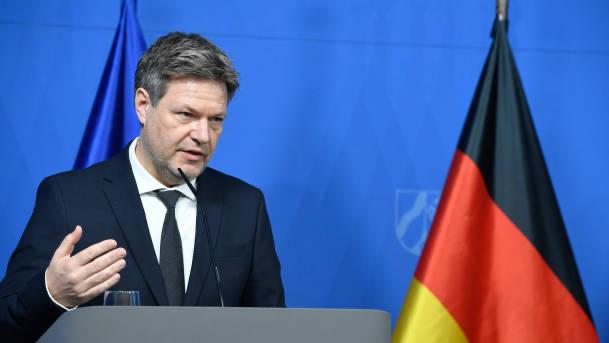Russia blatantly sent troops to Ukraine, and German Chancellor Olaf Scholz immediately announced that it would significantly expand its military, which was called a watershed in German diplomacy by the outside world. Under the stimulus of Putin, the European economic power has made a “clean break” with its past policy toward Russia, which focused on trade and dialogue.
Ulrich Speck, a well-known German diplomat, analyzed that Scholz not only cut off the tradition of German-Russian friendship established by former Chancellor Gerhard Schröder, who was close with Putin, but also terminated former Chancellor Angela Merkel. ) efforts to maintain an energy partnership with Russia is undoubtedly a major turn in Russia’s policy.
As we all know, before the Russian-Ukrainian war, Germany was phasing out coal power and nuclear power, and making a comprehensive transition to new energy sources such as solar energy and hydrogen energy. Natural gas became an important transitional energy source during the transition period. German government spokesman Steffen Hebestreit pointed out that about one-third of the oil used in Germany comes from Russia, and “it is not easy to replace it overnight.” But he also said that the federal government is closely watching the situation further develops, and the embargo must be decided at the EU level, which is not ruled out at present.
In last year’s Bundestag election, the Green Party attracted widespread attention with its aggressive emission reduction slogans. In the context of the Russian-Ukrainian war, the “de-Russification” of German energy is obviously more urgent than reducing emissions.
German Economy Minister Harbeck said on Saturday (25th) that in order to prevent Russian President Vladimir Putin from aggression in Ukraine, there is a considerable consensus in the international community to end dependence on Russian energy, and German energy companies will not renew contracts or change suppliers. “Amazing speed”.
He expects crude oil imports from Russia to be halved by the middle of this year, and “almost no longer dependent” by the end of the year. In the next few weeks, the dependence on bituminous coal will also be reduced from 50% to 25%, with no more imports from Russia until the fall.
As for natural gas, Harbeck warned that imposing an embargo on Russia now will in turn hurt its own economy, so it can only gradually reduce imports, and it is expected to get rid of its dependence on Russia by mid-2024.
Once natural gas is reduced, Germany could theoretically increase the use of coal and nuclear power as an alternative. But increasing the use of coal-fired power is inconsistent with Germany’s new government’s energy policy. Germany had previously planned to phase out coal power by 2038, but the new government has brought forward the target to 2030.
In nuclear energy, Germany shut down eight nuclear power plants after the accident at the Fukushima nuclear power plant in Japan, and the remaining nine nuclear power plants began to gradually reduce production, with a view to closing all of them in 2022.
At present, Germany has the last three nuclear power plants in operation. All three are managed by the Rheinland Group and are scheduled to close by the end of this year. The German government has refused to extend the operating hours of the three nuclear power plants.
Germany also has limited options when it comes to finding other sources of natural gas and increasing its LNG supply.
Habbock visited Norway and Qatar to purchase LNG a few days ago. He said that Germany plans to build two LNG ports as soon as possible, but it will take about five years to complete and start production. The Green Party economy minister’s campaign promise was to say goodbye to fossil fuels as soon as possible, but he now wants to build Germany’s liquefied natural gas ports as soon as possible.
However, Germany does not have its own LNG terminal, and in the past it could only be imported from terminals in places like the Netherlands. Germany will use the floating terminal to import LNG until the local terminal is completed, Harbeck said.
Through this trip to the Gulf, Habeck hopes to change the situation of Germany’s energy imports. A few days ago, he also visited Denmark to explore the possibility of expanding Danish gas exports to Germany.
Harbeck said the government was ensuring Germany could wean itself off Russian coal this summer and phase out Russian oil by the end of the year, but cutting off Russian gas supplies in the short term would hit Germany itself.
Nine economists from Germany, the United Kingdom, France and the United States wrote on the German public policy platform this month that if Germany immediately stopped importing Russian natural gas, even if it increased natural gas imports from other countries, temporarily increased coal and nuclear power generation, and Replenishing natural gas inventories in summer, Germany’s natural gas supply gap will also reach 30%.
Various forecasts have been made based on the degree to which Germany will replace Russian gas. In the best case, the impact of reducing Gazprom on German GDP this year will be less than 1%; in the worst case, the impact on German GDP will rise to 2% to 2.5%.
In either case, the German public will face sharp increases in energy prices. Germany is already the country with the highest electricity prices in Europe.
Those from the University of Mannheim in Germany and the European Association for Foreign Relations believed that the article underestimated the impact of Russian gas on Germany, predicting that cutting off Russian gas supplies could shrink Germany’s GDP by four to five percentage points.
Earlier this year, the German government lowered its GDP growth forecast for this year to 3.6% from an earlier forecast of 4.1%.
